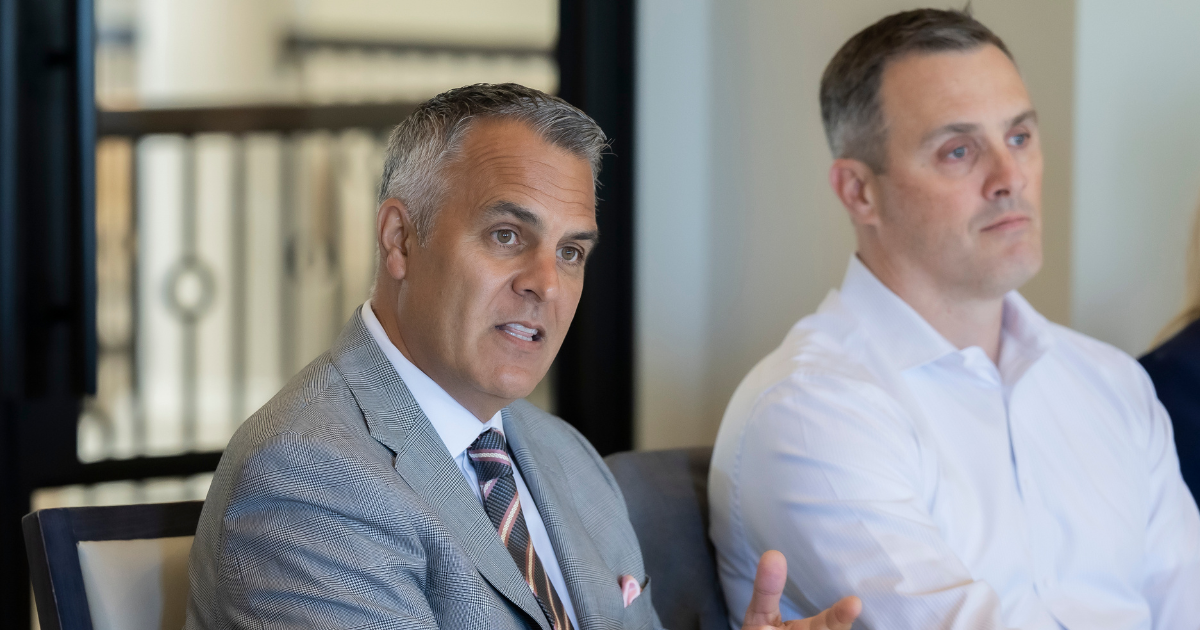The 2023 DCD>Connect in Silicon Valley offered the opportunity to discuss and provide solutions for challenges facing the data center industry. Three themes arose that require consideration: technology innovation driving up chip power densities, water scarcity due to climate change, and the impending energy regulations our industry will face.
The exciting realization from industry conversations is that there are answers. And interestingly, there is a commonality in the solution: liquid cooling.
Technology Innovation
First, let’s look at innovation. AI and ML are rapidly (and sometimes startlingly) changing what we thought technology could do. But what enables these advancements are GPUs that demand nearly 4X as much power as previous generations.
David Kandel of Belimo was interviewed on the DCD>Talks stage about how physics will no longer allow us to cool these chips in a traditional way. He referenced a poignant comment by Tim Shedd of Dell who said, “Our ability to cool is what will enable innovation on the computing side.” Kandel joked that his pessimistic view was “What a tragedy it would be if our inability to cool was the limiting factor in our ability to innovate.” Phrased either way, the implication is clear: advancements in cooling technology must keep pace with silicon innovation to prevent obstruction of future breakthroughs.
Energy Efficiency
It’s been interesting to watch how the conversation around sustainability and energy efficiency has evolved. Fifteen years ago, sustainability was talked about in the abstract, as something to be aware of as an industry. Then it moved to the practical, with suggestions for incremental improvements in energy efficiency: eco-mode UPS to save 2%, hot/cold aisle containment to save 5-10%, or even increasing ambient temperatures by a degree to save 4-5%.
However, the conversation today feels much more urgent. We’ve now lived through major “wow moments” that helped us see the immediacy of the problem (the Texas grid failing in 2021 and Loudon County running up against power demands in 2022, to name just two.) We don’t have time for arguments on reporting or metrics, nor will 5% improvements be enough.
In a DCD>Debate the question was posed “Is the industry’s obsession with carbon misplaced?” The conversation focused on the reporting & regulatory requirements that are coming (or have come, depending on the region) to the industry and how reporting will be a necessity. However, one ‘mic drop’ moment was when Andrew Fanara of CarbonCo stated “The best way to address carbon is by addressing demand. Use less electricity, and you’ll have less carbon to report.”
This is the crux of the situation. Let’s worry less about buying carbon offsets or building in areas with renewable energy, instead let’s focus on the fastest ways to cut energy use at the source. In a data center, cooling is the 2nd largest consumer of electricity, after the actual compute. So, let’s start there. There is a growing body of empirical evidence to support the extreme savings that liquid cooling enables, with estimates of up to 50% reduction in energy use as compared to air cooling. Once again – liquid cooling solves a key challenge facing the industry.
Water Scarcity
And, finally, the issue of water scarcity. Communities in the American West are already protesting data center water use amid continuing droughts. And as Wes Anderson of NOVVA Data Centers declared on a DCD Panel “people will start showing up with pitchforks once they realize how much our industry is wasting.” Good journalism is making that an impending reality, with articles highlighting that one large data center can consume up to 5 million gallons of water a day, which is as much as a town of 50,000 people. Others report that one ChatGPT conversation uses 500mL of water, which reaches significant volumes when you consider the hundreds of millions of users.
Once again, there’s good news though. This is not an unsolvable problem. Liquid cooling technologies, such as Accelsius’ 2-phase direct-to-chip solution consumes zero water.
Conclusion
As I look at the challenges facing the industry, and those that organically rose to the top of conversations last week, it’s a relief to see that an answer exists and it’s one that solves multiple problems. Liquid cooling will allow for continued technology innovation, dramatically reduce electricity use and stop the consumption of water that should be used by citizens, not computers.
I look forward to watching the evolution of these conferences to see what the next big enabler of innovation is, because as Kendal stated, “In 2033, no one will be on the stage talking about giant CRAH units blowing cold air into data centers. It’s just part of the past.”



.png)


